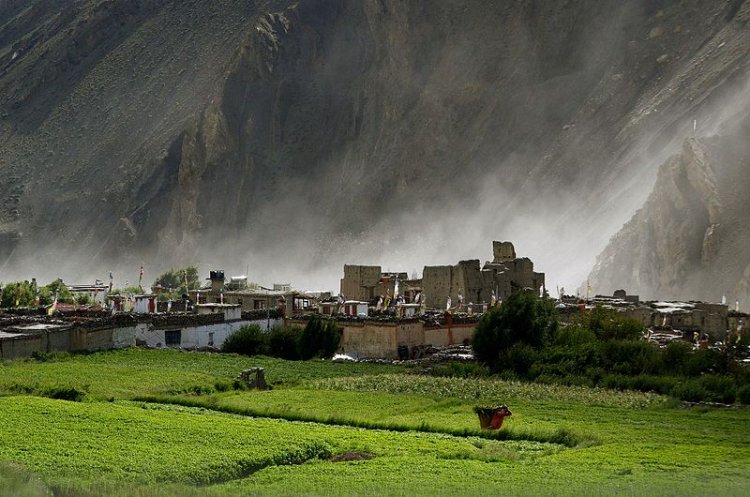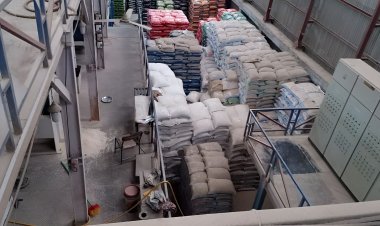Current Situation of Nepalese Agricultural Product
Discover the current state of Nepalese agricultural products and the key factors impacting the industry. Explore solutions to overcome challenges and opportunities for growth and development.

It is often stated that Nepal is among the most stunning nations in the world, with its natural beauty being a major draw. However, the economic situation in Nepal is deteriorating with each passing day. Like all things, Nepal has its pros and cons. While its beauty is certainly a positive aspect, the worsening economic crisis is negative. It is common knowledge that Nepal's economy relies heavily on agriculture, with the sector accounting for 60% of the country's economic activity. Agriculture is undoubtedly the backbone of Nepal, but there are recent concerns about its declining state.
In recent times, there has been an abundance of news in Nepal highlighting the wastage of agricultural products. It is astonishing to learn that Nepalese farmers are discarding their produce due to inadequate prices, while the country is simultaneously importing agricultural goods from India. This is a shameful state of affairs for Nepal's economy.
Various analyses and case studies should be conducted to address the issue described above. The Nepalese government should also pay attention to this critical yet often overlooked issue. It is unacceptable that Nepal's agricultural production is being wasted while the same products are being imported from other countries. The government should inquire into the needs of farmers and determine ways to motivate them to increase their production. These are important questions that the government should be asking itself.
Here are some possible reasons why farmers may be wasting their agricultural products on the road rather than selling it in the market:
-
Lack of Proper Market Access:
The agricultural marketing system in Nepal is characterized by a high degree of disorganization. The absence of any well-defined and structured system of measurement in rural areas has led to a situation where farmers are at the mercy of middlemen who exploit them. Farmers are not aware of the actual value of their products and are therefore unable to get a fair price. The middlemen determine the price of the products and often earn more than the farmers themselves. This has resulted in a demotivated farming community that is discouraged from increasing its production.
-
Less Bargaining Power:
Low bargaining power means that farmers have limited ability to negotiate the prices and terms of sale for their products. When farmers are not able to get a fair price for their products, they may become demotivated to sell them. This is because they may feel that their hard work and efforts are not being appropriately compensated.
-
Inadequate Irrigation Facilities:
Adequate irrigation is vital for agriculture, yet in Nepal, the irrigation facilities are insufficient. Nepalese farmers heavily rely on the monsoon for their irrigation needs, and only 55.8% of cultivated land has access to irrigation. Even the available irrigation facilities are not operational throughout the year, resulting in lower productivity. Without sufficient irrigation, it is impossible to increase productivity, which can ultimately lead to decreased production by farmers.
-
Lack of Physical Infrastructure:
The development of agriculture in Nepal is hindered by the insufficient physical infrastructure necessary for its growth. Essential facilities such as roads, irrigation systems, equipment, machinery, warehouses, and market centers are necessary for the exchange of agricultural products and for increasing the income of farmers. The absence of proper infrastructure also impedes the marketing of products, resulting in lower sales.
-
Inappropriate Government Policy:
The government's policy for the development of the agriculture sector in Nepal is inadequate. The agriculture policy does not consider the geographical location, regional prospects, or the needs of the people. Additionally, there is a lack of proper coordination between policies, priorities, programs, strategies, and their implementation, resulting in farmers not receiving a fair price for their products.
-
Lack of Storage Facility:
Nepalese farmers do not have access to storage facilities for their products, which compels them to sell at low prices during the harvesting season. They are unable to store their products for sale when demand and prices are high. Additionally, a significant amount of agricultural products is damaged by insects and rodents in traditional warehouses.
-
Existence of Middleman:
The majority of farmers in Nepal sell their products in local markets, which are typically intermediated by middlemen before reaching the ultimate consumers. As farmers lack organization, bargaining skills, and power, the pricing and flow of products heavily rely on middlemen. As a result, consumers end up paying higher prices, while farmers do not receive reasonable compensation for their products.
The Nepal government can take several measures to prevent farmers from wasting their products on the road and encourage them to sell in the market:
-
Provision of Storage Facilities:
Nepalese farmers do not have adequate warehouse facilities for storing their agricultural products, resulting in damage to the products' quality by pests, insects, dust, and weather conditions. Therefore, the Nepalese government should provide sufficient cold storage warehouses to farmers to encourage increased production.
-
Development of Transportation Facility:
Nepal's transportation network is inadequate, particularly in rural areas where all-weather roads are scarce and even existing transport facilities become unusable during the rainy season. As a result, farmers are unable to transport their products easily to market centers and sell them at reasonable prices. Therefore, the government should invest in the development of transportation facilities for agricultural products to improve farmers' access to markets.
-
Establish Market Linkages:
Establishing market linkages between farmers and potential buyers can assist farmers in finding dependable buyers for their products and reduce the need to sell to middlemen at low prices.
-
Ensure Proper Implementation of Policies:
The proper implementation of policies supporting the development of the agricultural sector by the government would create a conducive environment for farmers to sell their products at fair prices, ultimately reducing product wastage on the roads.
-
Remedies of Middleman:
Middlemen discourage farmers from producing and selling their products by taking advantage of their lack of knowledge and bargaining power. Most farmers sell their products in local markets, with middlemen playing a significant role in the product's flow to the ultimate consumer. Therefore, the government should penalize middlemen who offer farmers low prices for their products while charging high prices to consumers.
While farmers may face challenges with their production, wasting is not an appropriate solution. If farmers have any issues with their production, they should communicate with relevant parties, but it's important to keep in mind that wasting is not a viable solution.
What's Your Reaction?








































































































